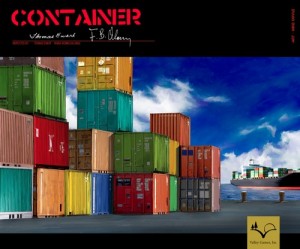One of my favorite hobbies is playing board and card games. There’s something I find very entertaining about studying an arbitrary set of game rules and understanding how to play the game well. It’s an intellectual exercise not dissimilar from trading. You might think, then, that there would be a lot of good economics or trading based board games out there. But in my experience there aren’t. Now, I should be specific about what I think constitutes a good game:
- Fairness and functionality. If the game isn’t fair to all players or doesn’t function right or you can’t figure out the rules then that’s no good.
- Emergent behavior. I think good games behave in ways that aren’t obvious from just reading the rules. A good example would be knock gin – the rules say that you can end the game with un-melded cards by “knocking” for fewer points. What’s not clear from the rules is that this allows defensive cards to be held to prevent your opponent from making melds. Sophisticated play emerges from a simple rule. That’s good.
- Strategic depth. Good games have layers of strategic depth akin to the layers of an onion. Learn one level of strategy, start playing against better opponents, and the next level presents itself. In the very best games, this extends all the way to the highest levels of play and beyond – the best 5 players at any given form of poker are far better than the next 5, for example.
I’m happy to report that by accident I stumbled into an economics/trading game that is in fact a good game: Container.
 Like many small-shop board games, it’s a little rough around the edges – it would have benefited immensely from pieces where you could easily tell the colors apart for example. But the underlying game is wonderful. The basic mechanics are simple – produce containers of trade goods, warehouse them, ship them, and sell them. What makes the game so good is the amazing variety of strategies and real world economic features that arise from those simple options. In a given game you can expect to see the forming and breaking of cartels, the differences in efficiency between negotiated and auction markets, game theoretic approaches to the pricing of goods, shortages and gluts, and many more real world economic features. Seeing all this arise from the simple rules of buying and selling is pretty cool.
Like many small-shop board games, it’s a little rough around the edges – it would have benefited immensely from pieces where you could easily tell the colors apart for example. But the underlying game is wonderful. The basic mechanics are simple – produce containers of trade goods, warehouse them, ship them, and sell them. What makes the game so good is the amazing variety of strategies and real world economic features that arise from those simple options. In a given game you can expect to see the forming and breaking of cartels, the differences in efficiency between negotiated and auction markets, game theoretic approaches to the pricing of goods, shortages and gluts, and many more real world economic features. Seeing all this arise from the simple rules of buying and selling is pretty cool.
A couple of caveats: container really needs either 4 or 5 players to run well. It’s playable with 3, but not very good in my opinion. Also, it really needs adult (or at least high school age) players, and pretty nerdy ones at that – experience in game theory is very helpful. But if you have the right kind of players, I think it may well be the best economic game on the market. Unfortunately it’s a little hard to find (Amazon doesn’t have it, for example), but you can find dealers that stock it on the Valley Games website.
In my next post I’ll explain why this game can actually make you a better speculator.